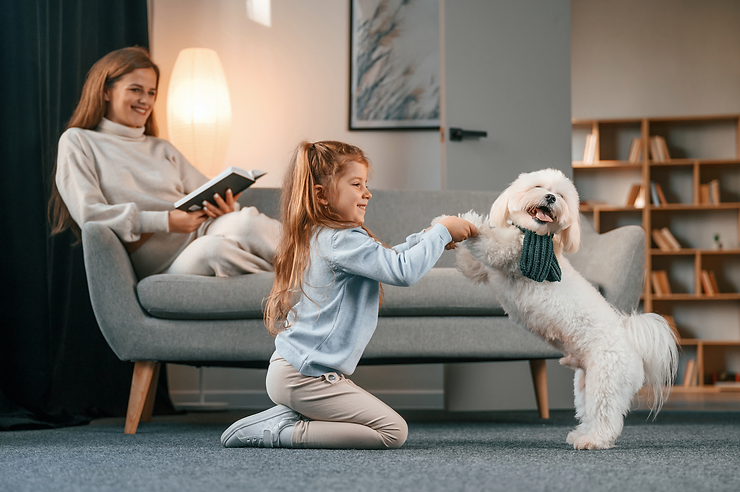Bringing a pet into your life is more than offering food, shelter, and occasional affection — it’s about understanding their physical needs, emotional well-being, and the daily habits that help them thrive. Whether you’re a first-time pet owner or someone looking to elevate your care routine, the difference between “basic care” and “expert care” can transform your pet’s health, happiness, and behavior for years to come.
This guide goes beyond the usual advice to explore expert-backed, practical, and often overlooked strategies that every pet parent should know.
1. Nutrition Isn’t Just Food — It’s a Lifelong Foundation
Most owners think feeding a pet “good food” is enough. Experts disagree. Proper nutrition means understanding what your pet specifically needs at each stage of life.
Feed According to Life Stage
-
Puppies/kittens need high-calorie, nutrient-dense formulas
-
Adults require balanced maintenance diets
-
Seniors benefit from joint support, leaner formulas, and easily digestible proteins
Avoid Overfeeding
Obesity is one of the most common but preventable health issues in pets. It increases risks of heart disease, diabetes, and joint problems.
Add Fresh Foods Safely
Pet nutritionists recommend enhancing meals with:
-
Cooked vegetables
-
Omega-3-rich fish
-
Small amounts of fresh fruits
These offer antioxidants, fiber, and healthy fats not always present in kibble.
2. Hydration: The Most Underestimated Health Factor
Pets often don’t drink enough water, especially cats.
Expert Tips
-
Use multiple water stations around your home
-
Add pet-safe broths to meals to boost hydration
-
For cats: consider a fountain, as running water encourages drinking
Proper hydration supports kidney health, digestion, and temperature regulation — essentials for long-term well-being.
3. Exercise and Mental Stimulation: Not Optional
Many behavioral problems stem from one issue: boredom.
Dogs Need More Than Walks
-
Structured walks (sniffing allowed!)
-
Play sessions: fetch, tug-of-war
-
Mental games: scent work, puzzle toys
Cats Need Daily Activity Too
-
Interactive feather toys
-
Vertical climbing spaces
-
Laser play (ending with a catchable toy to avoid frustration)
Enrichment reduces stress, prevents obesity, and strengthens the bond between pets and owners.
4. Grooming Is Health Care — Not Just Aesthetics
Regular grooming does far more than keeping your pet clean.
Why Grooming Matters
-
Removes loose fur and reduces hairballs
-
Prevents matting, which can cause skin infections
-
Helps you detect lumps, bumps, or parasites early
-
Supports healthy circulation
Expert Routine
-
Brush dogs and cats 2–4 times per week
-
Trim nails every 3–4 weeks
-
Clean ears gently to prevent infections
-
For long-haired pets: routine professional grooming reduces stress and discomfort
5. The Vet Isn’t for Emergencies Only
Routine medical care is the backbone of expert-level pet parenting.
Annual or Biannual Wellness Exams
These appointments allow your vet to:
-
Detect early signs of disease
-
Assess dental health
-
Discuss nutrition and weight
-
Update vaccinations
Preventive Care Saves Lives
Flea/tick protection, heartworm prevention, and dental check-ups are essential — not optional. Early prevention avoids costly and painful complications later.
6. Socialization: The Secret Ingredient for Well-Adjusted Pets
Pets need exposure to different environments, people, and other animals to develop confidence and emotional stability.
Critical for Dogs
Poor socialization can lead to fear-based aggression or anxiety. Start early and expose dogs gradually to:
-
Various sounds
-
New environments
-
Different types of people
Cats Benefit Too
Contrary to common belief, cats also thrive from gentle socialization, especially during kittenhood. It reduces fearfulness and improves adaptability.
7. Emotional Health Matters Just as Much as Physical Health
Pets feel stress, boredom, grief, and loneliness — and these emotions affect their behavior and health.
Signs of Emotional Distress
-
Excessive grooming
-
Destructive chewing
-
Hiding or withdrawal
-
Sudden aggression
-
Changes in appetite or sleep
Support Their Emotional Well-Being
-
Maintain predictable routines
-
Offer safe spaces
-
Use positive reinforcement
-
Avoid yelling or physical punishment
Consistent love and structure help pets feel secure and confident.
8. Create a Safe, Enriched Home Environment
Pet-proofing should go beyond removing hazards. It’s about designing a space where pets can explore, exercise, and relax.
Expert Recommendations
-
Provide designated rest areas
-
Keep toxic foods and plants out of reach
-
Secure windows and screens
-
Offer scratching posts (for cats)
-
Use baby gates to create pet-safe zones
A safe environment prevents accidents and supports healthier habits.
9. Training Shouldn’t Stop After Puppyhood
Training is an ongoing process, not something you “finish.”
Why Training Matters
-
Builds communication and trust
-
Reduces frustration for both pet and owner
-
Improves social skills
-
Prevents behavior issues from developing or worsening
Even adult or senior pets can learn — consistency is key.
10. Love Is Important — But Structure Creates Security
Many owners shower pets with affection but forget boundaries. Experts stress that structure, routine, and clarity help animals feel safer and behave better.
Build daily routines for:
-
Feeding
-
Potty breaks
-
Playtime
-
Rest
A stable schedule reduces anxiety and improves behavior significantly.
Final Thoughts: Expert Care Comes From Understanding
Going beyond basics isn’t about doing “more” — it’s about doing what truly matters. Pets don’t need perfection; they need attentiveness, knowledge, and consistent care.
When you understand their physical, emotional, and environmental needs, you’re not just a pet owner — you’re a committed guardian. And the reward is immense: a healthier pet, a stronger bond, and years of companionship filled with trust and unconditional love.
Your pet depends on you — but in return, they offer a kind of loyalty and joy that no other relationship can match.



